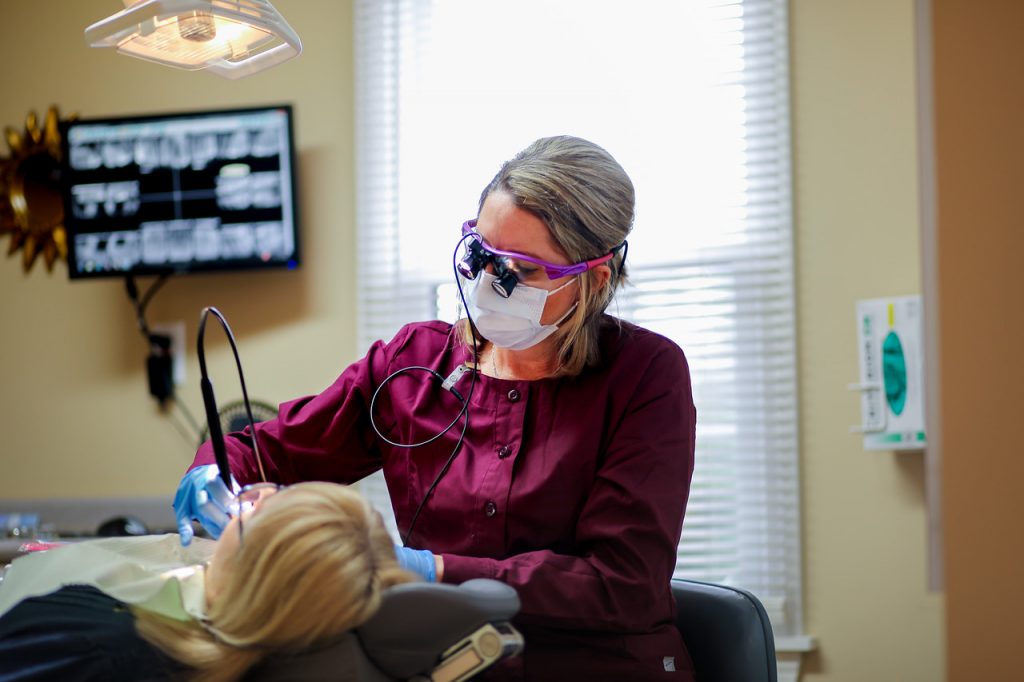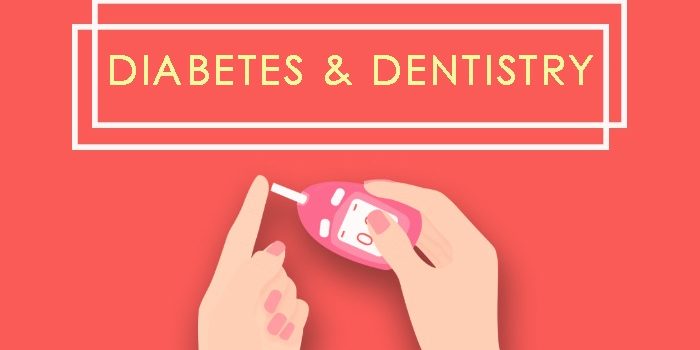J. Peter St. Clair, DMD Blog
DENTAL DIFFERENCES
February 18, 2020
Let’s use this hypothetical situation: You have not been to a dentist in a while (pick a time frame), you are well aware you need some dental work, you were given the recommendation of a dentist by a friend…..and, you decide to visit that dentist and four other dentists to compare and make a decision who is the best fit for you. (I realize that most people don’t want to and/or don’t have the time to visit five dentists….but play along).
You already have an idea of what you are looking for. It might be the dentist who says you need the least. It might be the dentist who is the cheapest. It might be the dentist who is closest to where you live. It might be the dentist who gives you the most options, or maybe the least. It might be the dentist who listens to you the best. Be prepared, because you are likely to hear a few different styles/opinions visiting five dentists.
Some practices may feel “clinical and efficient”, while others feel somewhat more home spun and laid back. The dentist’s personality and experience are reflected in his or her treatment preferences as well. The fact that different dentists will suggest different plans to treat your condition does not necessarily mean that one plan is better than another. Have an open mind and play an active role in the treatment planning process.
It is important to remember that there are numerous ways to treat the same situation, and it is always important for the dentist to tailor the treatment plan for each patient’s specific circumstances. A major part of those circumstances may be financial, and since different treatment plans can vary a great deal in cost, it is important for the dentist to discuss costs and options for payment.
Think of treatment plans like various models of cars offered by different dealers. All of the models are new, have warranties and will work well out of the lot. The higher end models, however, have some advantages not found in the less expensive models. Some options add years to the life of the car. Some add to the appearance and enjoyment of driving it. Having said that, dentistry is not a commodity. There are many factors that need to be taken into consideration when choosing your provider or the treatment you choose for yourself.
What makes sense for you? What are your objectives? Saving a badly damaged tooth with a root canal and a crown may preserve it for a long time, but what are the circumstances of how the tooth got to that point? If you haven’t been to a dentist in many years and have many other dental needs, does it make sense?
We have so many great dental providers in our area. Think about what you are looking for in a dental care team Read that list in the second paragraph again.
The focus should be on long-term objectives and prevention. If you are a regular dentist-goer and have a dentist you like, you’re all set. If you haven’t been in a while, consider making the decision to change how you look at your dental health. Start with finding a place that fits your particular needs, and make the commitment to make routine preventive dental care part of your life.
Dr. St. Clair maintains a private dental practice in Rowley and Newburyport dedicated to health-centered family dentistry. If there are certain topics you would like to see written about or questions you have please email them to him at jpstclair@stclairdmd.com. You can view all previously written columns at www.jpeterstclairdentistry.com/blog.
DENTAL X-RAYS
February 10, 2020

Here are a few common questions and answers regarding dental radiographs:
I had a dental x ray while I was pregnant. I am worried that my unborn child might have been exposed to the radiation. Can you please tell me if there are any risks to my baby from this?
There is no information suggesting any risk to an unborn child from dental x-rays received by the mother. We were taught in dental school to avoid dental x-rays on pregnant patients. However, with newer technology the radiation dose to the fetus is insignificant. Prudent practice would dictate limiting x-rays on pregnant women, but there is absolutely no harm in taking x-rays if needed to diagnose a problem.
Is there residual radiation in a room after a dental radiograph has been taken?
X-rays cease to exist when the machine is switched off, much like the light from a light bulb when it is turned off. No residual radiation remains.
How much has dental x-radiation been studied and how concerned should I be about having dental x-rays done? Is there a limit on how many I can have?
We now have very complete information on patient radiation doses from dental x-rays. They are among the lowest radiation dose exams of any diagnostic radiologic procedure in the healing arts. Current practices deliver patient doses from a full-mouth series of intraoral films (usually 14-18 films) that are less than what a person receives in a month from natural environmental sources (commonly called background exposure). Doses from bitewing or panoramic films are even less. New technology is reducing the doses still further. There is no limit on how many dental x-rays you can have. The decision to have a dental x-ray is based on the benefit of knowing whether or not there is a cavity, crack, or some other abnormality. So the decision to have them is based on what you and your dentist think.
I recently had some dental x rays and the operator forgot to place the lead apron on me. Is this a problem?
Use of the lead apron to protect the patient undergoing dental radiographic examination was recommended some 50 years ago, when equipment was crude. This was because x-ray beams were not restricted to the area of clinical interest, beams were not filtered, and x-ray film was slower, causing radiation exposures 10 to 100 times higher than received today. With the current technology reducing radiation exposure significantly, and the beam limited only to the area of interest, there is little or no measurable difference in whole-body dose whether a lead apron is used or not. The lead apron is no longer regarded as essential although some consider it a prudent practice, especially for pregnant and potentially pregnant females.
If you have any other questions on dental x-rays, please e-mail them to me.
Dr. St. Clair maintains a private dental practice in Rowley and Newburyport dedicated to health-centered family dentistry. If there are certain topics you would like to see written about or questions you have please email them to him at jpstclair@stclairdmd.com. You can view all previously written columns at www.jpeterstclairdentistry.com/blog.
Is There a Link Between Gum Disease and Heart Disease?
February 6, 2020

Since February is the month of love, now seems like as good a time as any to talk about your heart. More specifically, how your gums can affect your heart. If you have periodontal disease, also known as gum disease, that puts you more at risk of developing cardiovascular problems. Why is that? A dentist is here to explain the gum-heart connection and what it means for you.
(more…)DIABETES & DENTISTRY – PART 2
February 3, 2020

Last week I discussed the role and effect that diabetes has on oral health. It is not something that should be taken lightly. If you missed this column, please visit the website at the end of this column or e-mail me directly and I will send you a copy.
After reading last week’s column, it may seem frightening that there is no way out of the partnership of horrors between diabetes and severe gum disease. There are solutions. Just as poor oral health can compound a diabetic’s situation, proper oral health can come to the rescue.
Clinical studies confirm that treatment of gum disease reduces oral inflammation, which removes the factor that triggers the body’s inflammatory response which, in turn, plays a major role in compounding the effects of diabetes. Dental treatments that fight gum infections also help improve control of blood sugar levels in diabetics.
If you are pre-diabetic, your dentist may actually be able to help prevent diabetes. If you already have diabetes, your dentist may be able to help you keep it under control, improve your quality of life, and reduce the risk of premature death.
There’s even better news. It’s never too late to improve oral health care. Even if you already have severe gum disease or other dental problems, proper treatment can help stop it in its tracks. In many cases, dentists can even reverse the damage done to your teeth and gums as well as manage the metabolic elements of diabetes. And, if you haven’t yet developed any symptoms of diabetes-related oral health problems, your dentist can start a prevention program that will help you stay in control of your diabetes, maintain better health and enjoy a preferred quality of life.
Perhaps the best news is that this is something that doesn’t require exercise, taking a pill, giving yourself a shot of insulin, or sticking to a special diet. However, some or all of these things may be necessary to also help control diabetes. From an oral health perspective all you need to do is to start seeing your dentist and talking to him or her about your particular situation.
When it comes to partnering with you to manage the oral health issues in regards to diabetes or pre-diabetes, there are going to be varying degrees of participation from dentists, depending on their knowledge or “philosophy” of care. The best team approach is between the doctor, the patient and the dentist. If one of these team members does not participate, the battle cannot be won. Often times, it is the patient who is not doing the things that he or she needs to do to properly manage the problem. If the dentist does not seem too concerned about your diabetes and you have the desire to have your oral health properly managed and are willing to do your part, find a new dentist.
The point is that this is a serious issue and if you, the patient, wants to take control of it, a team effort is needed. Find the right team. Make a commitment to improve your health and quality of life. You can do this.
Dr. St. Clair maintains a private dental practice in Rowley and Newburyport dedicated to health-centered family dentistry. If there are certain topics you would like to see written about or questions you have please email them to him at jpstclair@stclairdmd.com. You can view all previously written columns at www.jpeterstclairdentistry.com/blog.
DIABETES & DENTISTRY
January 27, 2020

With more than 24 million diabetics and 57 million pre-diabetics in the United States, nearly a quarter of the nation’s population, the connections between dental health and diabetes have never been more critical.
As an indication of our general health, the rapidly rising rate of diabetes should be ringing alarm bells everywhere. The litany of health implications from diabetes is a long and grisly list. It is the sixth leading cause of death in the U.S. That is probably vastly understated, because as many as 65% of deaths from diabetes are attributed to heart attack and stroke. People with diabetes have about twice the overall risk of death as those who don’t have the disease.
Complications from diabetes can cut years off productive lives and interfere with the quality of those lives through a host of debilitating health effects. Heart disease and stroke rates are as much as four times higher among diabetics. Nearly three-quarters of diabetics have high blood pressure. Each year, diabetes causes blindness in as many as 24,000 Americans. It is the leading cause of kidney failure, nervous system disease, amputations – the list goes on.
This isn’t meant to be a scare tactic. These are simply the facts and, yes, they are sobering. But if you have diabetes or are pre-diabetic, you may want to brace yourself, because we are going to talk straight about oral health and diabetes, two diseases that can twist each other into a tight downward spiral of amplifying negative health effects. Unless they are halted by your physician and your dentist working in tandem as a health care team, together with your commitment to hold up your end of the bargain, these effects can continue to compound.
The facts about the connections between oral health and diabetes are even more alarming than those about diabetes alone. Here are just a few:
Diabetics are twice as likely to develop gum disease. This is especially true if your diabetes is not under control. The gum disease then worsens your diabetes through an automatic response that your body uses to fight the infection.
People with gum disease are 270% more likely to suffer a heart attack than those with healthy gums.
People who have diabetes and severe gum disease have a premature death rate nearly eight times higher than those who do not have periodontal disease.
Those who have gum disease and diabetes together are more than three time likely to die of combined heart and kidney failure.
In people who have type 2 diabetes, gum disease is a predictor of end-stage kidney disease.
In people who have pre-diabetes – blood glucose levels that are higher than normal but not in the diabetic range – gum disease makes it more likely that they will become diabetic.
Once established in a person who has diabetes, the chronic infection that causes gum disease makes it more difficult to control diabetes, and increases damage and complications in blood vessel disease.
We will continue this discussion next week and talk about some things you can do to help this problem.
Dr. St. Clair maintains a private dental practice in Rowley and Newburyport dedicated to health-centered family dentistry. If there are certain topics you would like to see written about or questions you have please email them to him at jpstclair@stclairdmd.com. You can view all previously written columns at www.jpeterstclairdentistry.com/blog.
THE DAILY GRIND
January 20, 2020

Studies have shown a link between teeth grinding, clenching and headaches. There are also links to people who have sleep breathing disorders, and those who take serotonin uptake inhibitors (SSRI). Some brand names of these drugs are Celexa, Lexapro, Prozac, Paxil and Zoloft. Many people grind and clench their teeth for many different reasons – let’s not forget STRESS!
For people who grind or clench, the muscles that open and close the jaw can become painful from overuse, causing a range of symptoms from tension to migraine headaches to jaw joint (TMJ) problems to tooth pain. Here is a simple test – look at your tongue in the mirror without sticking it out. Are the borders smooth? If they are ridged, you are probably doing something outside of normal function.
Bruxing (grinding) and clenching teeth is defined as abnormal tooth contact (parafunction). Ordinarily, teeth should only be in contact while eating and swallowing, which is about 10 to 15 minutes on a daily basis. People who grind or clench their teeth during the day, or while sleeping, can have their teeth in contact for as much as six hours a day or more. Researchers say that one night of grinding is equivalent to 80 days of normal wear. Read that last sentence again.
Clenching can be just as bad, and in some cases, worse than grinding. The average person puts about 200 lbs. of force on back molars during function, but a person who clenches can put up to 1000 lbs. on the molars. This is a lot of force for the teeth to withstand. Fractured teeth are seen on a regular basis in dental offices due to clenching. Typically, a person will come in saying that their tooth broke while they were eating something soft. While that may be the case, often times clenching and/or grinding has weakened the tooth prior to it breaking.
The American Dental Association estimates that 95 % of the American population suffers from a grinding or clenching problem at some point in their lives. Some people do so much damage over time that they need a lot of dentistry to restore their teeth back to normal function. The key is early diagnosis and treatment.
Many patients do not realize, and some refuse to accept the fact that there is a problem. The reason for this is because many, if not most, do not have symptoms. The masticatory system is a very adaptive and forgiving system. Some even think their symptoms are just normal. However, if a problem is identified, accepted, and treated, it can help prevent numerous potential issues down the road.
Therefore, successful therapy starts with acceptance of the pathology present. In addition to behavior modification, nighttime bite splints can be very effective. They should be worn every night, not just when it “seems” like you have been grinding or clenching. It’s like wearing a knee brace. You wear the brace to support the knee to help prevent more injury.
Some patients require daytime splints because their issues are affecting them during the day, and a “night” guard might not be enough. Over-the-counter appliances are typically not recommended for a variety of reasons.
Ask your dentist whether you have any of the signs associated with grinding or clenching, and especially talk to your dentist if you have any symptoms. If the reason can be identified as to why this happening, it will direct the provider to offering the best solution for your specific situation.
Dr. St. Clair maintains a private dental practice in Rowley and Newburyport dedicated to health-centered family dentistry. If there are certain topics you would like to see written about or questions you have please email them to him at jpstclair@stclairdmd.com. You can view all previously written columns at www.jpeterstclairdentistry.com/blog.
IT WON’T GO AWAY
January 13, 2020
A while back, The Boston Globe ran an article entitled “Advice for all ages: Don’t skip the dentist.” It started with, “A team of researchers from London and the University of Connecticut announced that aggressive treatment of gum disease can improve the function of blood vessel walls in the body, potentially reducing the risk of heart attacks.”
The concept is nothing new. We have known for years of the mouth-body connection with health. However, the key to the statement above is “aggressive treatment of gum disease”.
What does aggressive treatment of gum disease mean? Basically, it means that instead of watching and waiting for resolution of gum problems on their own, whatever treatment is needed to achieve gum health should be performed.
Periodontal (gum) disease is a silent disease. This means that it does not hurt. Over 75% of the population has some form of periodontal disease. Whether you have early stages of the disease or advanced periodontal involvement, you have periodontal disease.
Any form of this disease is potentially affecting your overall systemic health. The goal in any case is to become periodontally healthy, whether it involves simply seeing a dentist more frequently or surgery.
It is easy for patients, and even dentists, to watch and wait as opposed to taking action. “Aggressive treatment of gum disease” means that if the disease is identified, it needs to be addressed. Let’s get it right out in the open – Once you have periodontal disease, and even after it is treated, it will always return unless you follow a strict regimen of home care and professional care…….for your entire life.
Even the smallest amount of inflammation in your mouth is gum disease. Periodontal disease is a chronic inflammatory process. As the article states, “Chronic inflammation anywhere, makes the body release nasty chemicals called cytokines that have been linked to diabetes and heart disease.” It goes on to say, “Cytokines can also trigger inflammation in artery walls, raise blood pressure, worsen cholesterol levels, and increase blood clotting, which can lead to potentially fatal heart attacks.” This also includes strokes. “Pregnancy complications, too, have been linked to gum disease, perhaps because chronic inflammation leads to high levels of a hormone-like substance called prostaglandin E-2, which can induce labor.”
No one wants to hear that they need treatment for something. It is even harder to get someone to “treat something” that does not hurt and is seemingly not affecting their daily life.
The fact of the matter is, periodontal disease is a disease. Diseases need to be treated or they will affect and possibly even shorten your life. Periodontal disease is no exception. And remember, “aggressive treatment” does not mean watch and wait to see if it goes away. It won’t go away on its own – I promise.
Dr. St. Clair maintains a private dental practice in Rowley and Newburyport dedicated to health-centered family dentistry. If there are certain topics you would like to see written about or questions you have please email them to him at jpstclair@stclairdmd.com. You can view all previously written columns at www.jpeterstclairdentistry.com/blog.
YOU HAVE TIME IN 2020
January 10, 2020

We’re a week into the last year of another decade. Wow, does time fly! Do you have your list of New Year’s resolutions to make 2020 the best year ever? Throughout the year I’m always adding things to my list of things to do. As with many to-do lists, some of the items on it keep getting pushed down in the ranking of priorities because of the constraints of time. So, just like last year, my first New Year’s resolution is to take that list and purify it.
Many driven people pride themselves on how many tasks and commitments they are able to take on. This is difficult to sustain. Eventually, this philosophy of always doing more becomes counterproductive, as you inevitably have to approach your growing list of commitments from a different perspective.
The reality of it is that getting more done is not a matter of doing more things; it is a matter of doing the right things with your time. In that sense, the answer is often found in identifying and relieving yourself from the low-value time wasters that hold you back from giving your full attention to the things that truly matter to drive you forward.
You can’t buy more hours in a day, but you can reclaim time for yourself. You can choose to delegate and/or choose to streamline and purge yourself of recurring nuisances that eat away at your productivity. You can choose to say “no”. If there is something that doesn’t fit your criteria for being worthwhile, don’t do it. However, eliminating things from your life does not mean burdening someone else with daily personal responsibilities.
By purifying your time priorities in this way, you amplify the value of your time. So, as you put together your list of things you want to do over the coming year, be sure to work on another list at the same time: a list of things you don’t want to do anymore.
Be persistent with it, keeping in mind that this is your most precious resource we are talking about. Examine each recurring demand on your time and ask yourself if it’s adding value to your life in an intangible way? Is it enhancing your productivity and improving your life? If the answer is no to both of those questions, the next question becomes obvious: Then why are you doing this?
Challenge yourself right now to sit down and create your own list of things to not do in 2020. Try to come up with at least five items. This is a great way to start the year with a feeling of liberation. This allows you to clear your mind of clutter and award yourself more time and energy to embrace the really important possibilities.
You can create specific lists for different aspects of your life, like your health. Changing your habits takes effort and the awareness that you want the change in your life. Quality sleep is probably one of the most important things to make sure is in check. Many people have sleep hygiene issues that greatly affect their life and how they feel. I’ll have more on that this year!
If you have been neglecting your dental health, make this a priority to get in order this year. It doesn’t matter if you “think” everything is okay. As with every single thing on your list, there needs to be accountability. Change is good for you!
Dr. St. Clair maintains a private dental practice in Rowley and Newburyport dedicated to health-centered family dentistry. If there are certain topics you would like to see written about or questions you have please email them to him at jpstclair@stclairdmd.com. You can view all previously written columns at www.jpeterstclairdentistry.com/blog.
Can Receiving Sleep Apnea Treatment Help Me Lose Weight?
January 7, 2020

It seems that there’s always a new fad that appears online. One of the latest topics trending involves sleep apnea treatment being associated with weight loss. Because the new year is getting underway and you may be eager to drop a few pounds, a local dentist weighs in to clear up any confusion so you can know what to expect from any sleep breathing treatment you may undergo.
(more…)21 SUGGESTIONS FOR SUCCESS
January 6, 2020

Thanks again to the The Town Common for another great year. At the end of each of the past 14 years, I have used this space to publish these 21 Suggestions for Success authored by H. Jackson Brown, Jr. It is the perfect time to reflect on the year past and prepare for any changes we need to make for the year to come.
How was 2019 for you? While reflecting on the past year is important, thinking forward to the year to come is even more important. The past is in the past.
Cut this out and put it on the refrigerator. Read this list often and take these suggestions to heart. They will be sure to make your 2020 great!
- Marry the right person. This one decision will determine 90% of your happiness or misery.
- Work at something you enjoy and that’s worthy of your time and talent.
- Give people more than they expect and do it cheerfully.
- Become the most positive and enthusiastic person you know.
- Be forgiving of yourself and others.
- Be generous.
- Have a grateful heart.
- Persistence, persistence, persistence.
- Discipline yourself to save money on even the most modest salary.
- Treat everyone you meet like you want to be treated.
- Commit yourself to constant improvement.
- Commit yourself to quality.
- Understand that happiness is not based on possessions, power or prestige, but on relationships with people you love and respect.
- Be loyal.
- Be honest.
- Be a self-starter.
- Be decisive even if it means you’ll sometimes be wrong.
- Stop blaming others if it means you’ll sometimes be wrong.
- Be loyal and courageous. When you look back on your life, you’ll regret the things you didn’t do more than the ones you did.
- Take good care of those you love.
- Don’t do anything that wouldn’t make your Mom proud.
Best wishes for a successful 2020. Happy New Year!
Dr. St. Clair maintains a private dental practice in Rowley and Newburyport dedicated to health-centered family dentistry. If there are certain topics you would like to see written about or questions you have please email them to him at jpstclair@stclairdmd.com. You can view all previously written columns at www.jpeterstclairdentistry.com/blog.







